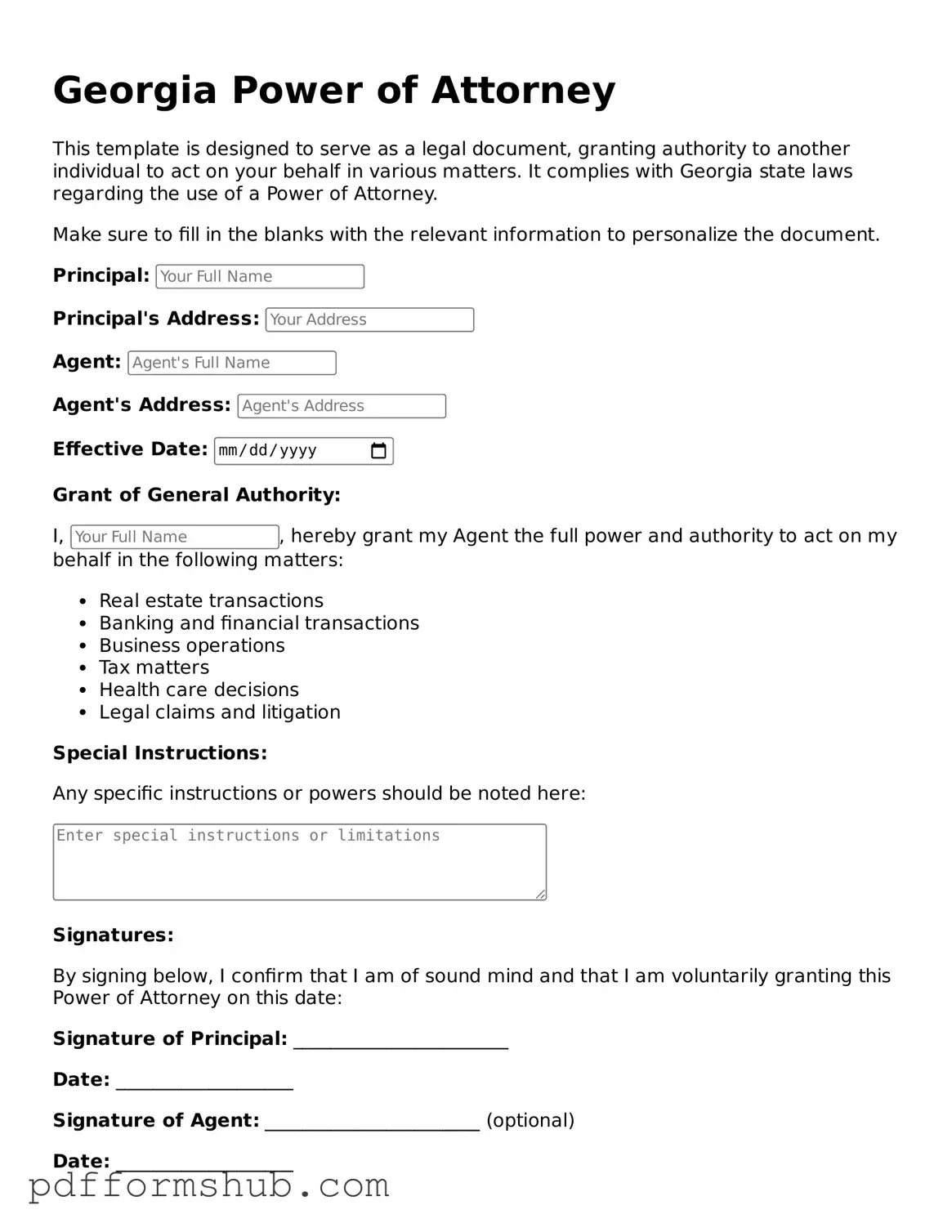Attorney-Verified Power of Attorney Form for Georgia State
The Georgia Power of Attorney form is a legal document that allows you to appoint someone to make decisions on your behalf. This can include financial matters, healthcare decisions, or other important issues. Understanding how to use this form can help ensure your wishes are respected when you need assistance.
If you're ready to take control of your future, fill out the form by clicking the button below.
Customize Form

Attorney-Verified Power of Attorney Form for Georgia State
Customize Form

Customize Form
or
Free PDF Form
Short deadline? Complete this form now
Complete Power of Attorney online without printing hassles.